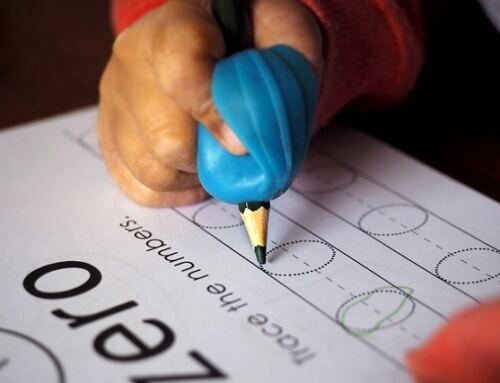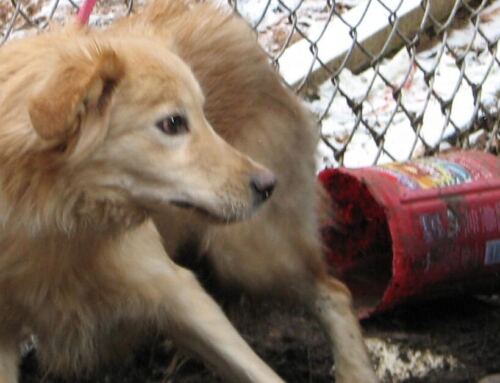Vocalizing is one of the first behaviors puppies perform. Along with rooting and suckling and dragging themselves along like seals, crying and whining were how they got needs met. It got mum’s attention along with being cleaned, and fed. It’s a well rehearsed and reinforced behavior. As puppies grow they begin to climb, not just on mum and over their siblings, but on any obstacle in their way. Jumping up is another of the early behaviors they do a lot. Wolf pups jump and lick the faces of adult wolves. It stimulates them to regurgitate food. The mum I’ve been caring for does the same thing. Her puppies have also had to stand up on their hind legs to feed during weaning.
My pups have been able to run, sniff and play outside. They investigate everything in their path. They interact with or move away from other pups as they like. Pups not stuck in puppy mill, back yard breeder, or pet shop cages have likely also spent the first months of their lives performing similar behaviors.
How Normal Becomes A Problem
Flash forward six months. Owners start looking for training classes to address problem behaviors such as; barking, jumping and wanting to move faster than their owners while on a leash. All of these behaviors are not only normal behaviors, they have been used, successfully for the puppy’s entire life. They have what is the longest possible reinforcement history with them, starting on day one.
Talking about behavior in ways that causes us to feel and think about it negatively isn’t fair. Suggesting that puppies or dogs try to make us feel bad for them, manipulate us, dominate us, isn’t fair. It justifies having things OUR way by any means possible. From yanking and pulling or raising our voice, to the painful use of choke, prong or shock collars, we behave as though we are entitled to use any amount of force we are capable of applying.
Use Positive Reinforcement (Food & Fun)
Pain, fear, threats or punishment are not required to teach, or learn. Avoiding being smacked with a ruler for making a mistake may have had kids studying their multiplication tables, but it probably didn’t do much for their love of learning math. You should know that any trainer with the education and skills to help you with your dog, even with the most extreme problem behaviors, will not recommend yanking, dragging, collar pops, verbal reprimands, poking, kicking or doing anything that scares or hurts your dog. The dog training industry is unregulated. Protect your puppy from trainers who don’t respect the work they do enough to get an education in behavior and learning.





